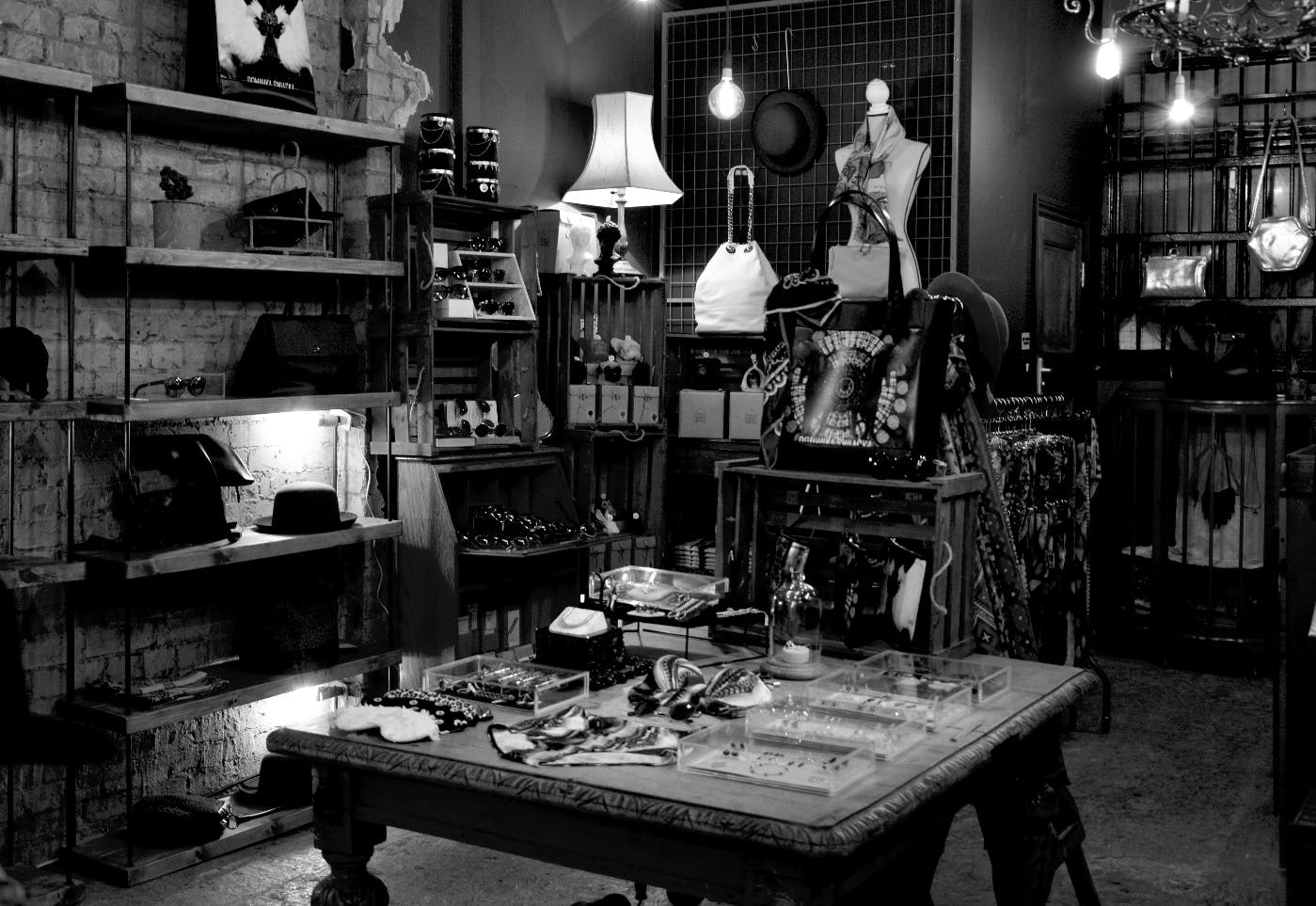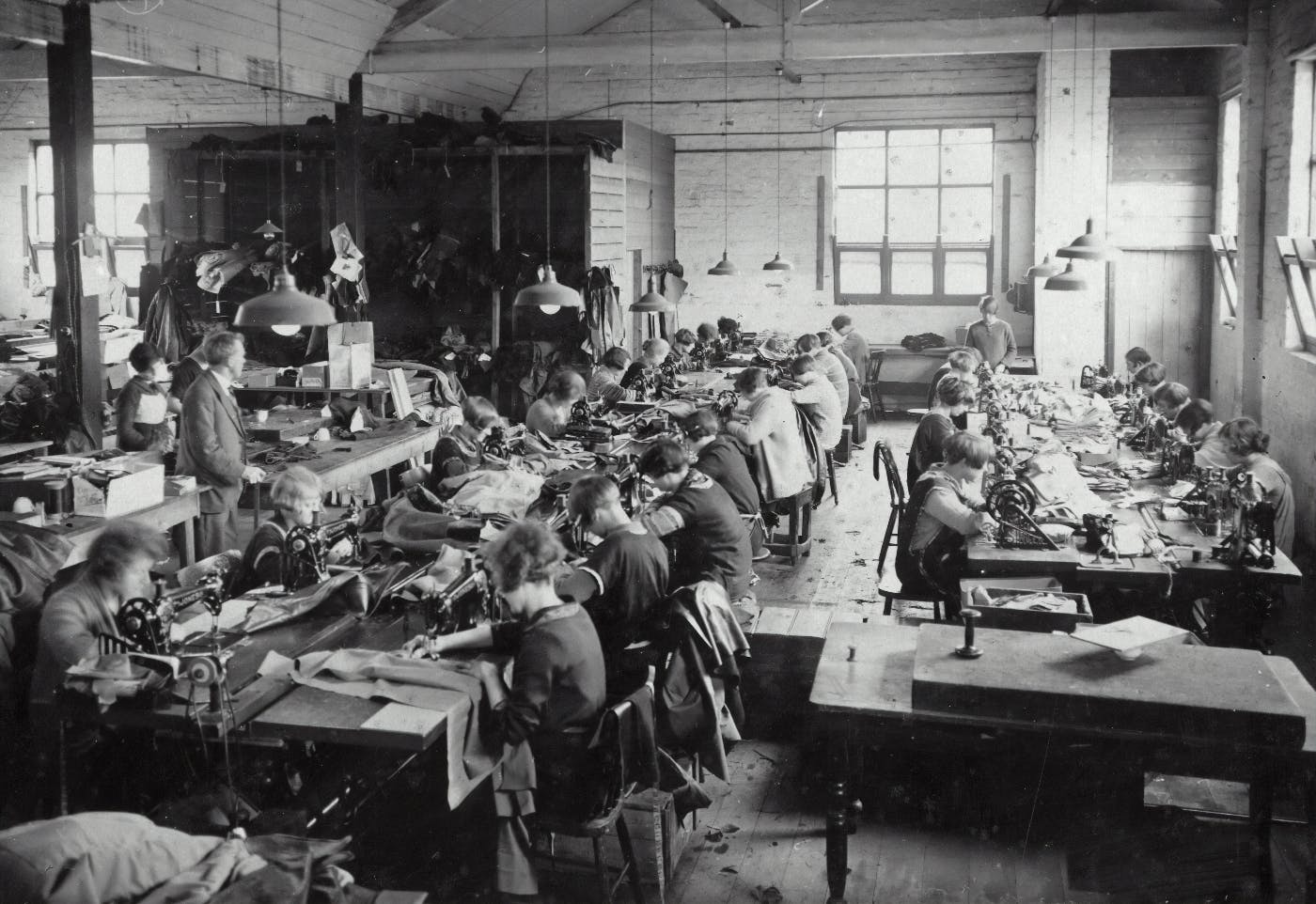

Then I had to admit that I, like many people, use the term Luddite when they find themselves at odds with technology. But is that right? Is that who they were and what they were fighting against?
I started my Monday morning very excited, coffee in my favorite cup, a good night’s sleep behind me, the sun peeking above the horizon, and me, sitting at the keys, excited to start this new piece. Mondays can sometimes be a drag when you have no idea what to write about, and a deadline is looming like Canada over you. Not today, friends, not today.
Today I am going to write about AI, how it’s pure science fiction evil, and how it will destroy art and originality, how AI writing tools will make my job and thus me obsolete. I woke filled with fire and passion, dictating lines that would be in this article out loud while I showered and dressed. I giggled at the great anti-technology zingers I was weaving into a tapestry of brilliance and logic, confident I would inspire an uprising, AI writing tools would be heaped on the burning pile, and my job would be safe.
As I moved briskly from kitchen to desk, coffee cup in hand, held chest high like a shield, my cat said, “You write that, and people are going to think you’re a Luddite.”
I dropped heavily into my desk chair, and I thought two things. One, is it that bad to be called a Luddite, and two; I don’t have a cat.
We’ll deal with the second thought later, maybe. But the first thought has got me wondering, is it so bad, as a writer, faced with AI writing tools that quite possibly could render me obsolete to be a Luddite?
Maybe. Maybe Not.
Then I had to admit that I, like many people, use the term Luddite when they find themselves at odds with technology. But is that right? Is that who they were and what they were fighting against? Was the whole movement just about men not wanting progress, wanting to hide in dimly lit rooms, happy with the way things were? I had no idea. So, I found out.
Luddites, Who and Why
When people fight with technology or even choose not to engage with it, they are often labeled as Luddites. Which to our modern ears means someone inept with technology, so they hate it, or they see technology as replacing people and what follows is, of course, an Asimovian World War between man and machine.
That is not true.
Despite how easy it is for us to label those who are technically challenged as Luddites, the members of that original movement of industrial protesters over 200 years ago were not opposed to technology, nor were they inept at using it.
Many of these protesters, later known as Luddites, we skilled textile operators. And the technology that they were protesting against was not all that new. And the smashing of industrial machines, their calling card, was not new to the world either. What the Luddites did and what they believed has lasted through the ages and has been co-opted by social media and anti-technology movements and as a form of criticism, primarily due to great branding.
The Luddite Brand

In 19th Century Britain, there was mass unemployment, an endless war against Napoleon, and food was scarce and getting increasingly more expensive. Then on March 11, 1811, British troops in Nottingham broke up a crowd demonstrating for more work and better pay.
That night, protesters destroyed some textile machinery in a nearby village. This set off a string of protests, destruction, and bloodshed from Loughborough in the south to Wakefield. Soon the government posted thousands of troops in front of factories, and Parliament made machine breaking a capital offense.
Luddites focused on one particular technology to destroy, the stocking frame. This was the knitting machine that had been invented more than 200 years prior to the start of the Luddite protests by William Lee. It was met with questions right from the advent, and Queen Elizabeth I, fearing the machine would displace thousands of hand knitters, refused Lee a patent.
But improvements on the machine were made, men learned how to work it, and it helped the industry grow and provided thousands of new jobs.
The machines were fine with the Luddites; They liked the new or updated old machines. They were protesting manufacturers who used the machines in what they saw as a “fraudulent and deceitful manner.”
The Luddites didn’t hate technology; they were not trying to stop forward progress; they applauded it and embraced it. They wanted good machines that made excellent products. They wanted these new machines run by men who had gone through an apprenticeship and were paid decent wages. That was all they wanted. They were angry at manufacturers who used the machines to get around fair labor practices.
The Phantom Ludd
Ned Ludd was known by several names, The Captain and even King Ludd, and he first appeared at the Nottingham protests in 1811. He then moved around, building a following, but always just on the periphery. He was said to be in charge of an army, drilling at night, which put factory owners, the police, and the government on high alert. He was feared and revered. He was a lauded leader and a dangerous outlaw.
He was also a myth. Ned Ludd didn’t exist.
Twenty-two years prior to the Nottingham protests, in Leicester, a man named Ludd, or Ludham, was working at a stocking frame and is said to have taken his supervisor's demand of “squaring his needles” rather badly. He took a hammer and flattened the entire machine. This story made its way to Nottingham, and this fictional Ludd, who destroyed a stocking frame, became the symbolic leader and namesake of the Luddites.
The Luddites were very serious about getting well-trained men to operate the new machinery and getting them a good wage. But they had some fun along the way. They often sent out rather officious sounding letters signed: From Ned Lud’s Office, Sherwood Forest.
They attacked authority with wit, swagger, and style, giving them and their cause a particular character, and that character is what we now call their brand. That brand held the collective captive and was incredibly memorable because the entire movement seemed larger than life.
We Are Getting it Wrong

Despite how we use the term Luddite now, those who were members of the clan then recognized the benefits of the industrial revolution and how it greatly impacted the world. However, they were concerned about how these massive changes were affecting their “modes of thought and feeling.”
They feared men were growing mechanical in heads and hearts as well in their hands. This feeling of becoming human machines led to the adoption of the Luddites as champions of the pre-technological way of life.
They took the protests for better training and wages and transformed them into an anti-technology movement.
That was not what the Luddites were protesting and certainly not what they believed.
Harmony With Technology
The point here is that if we get beyond the hype and see the Luddites for what they really were trying to accomplish, they have sent us a message that it is very possible to live with technology and live well. We don’t have to be replaced, and by embracing technology, we will not become victims of the great robot uprising and subsequent war.
However, we do have to be dutiful and question how technology shapes our lives. What changes do we allow, and which ones do we seem to get swept up in without knowing?
For me, railing against AI writing programs is futile. Understanding them and how they can be helpful is smart. Knowing they are just tools and not replacements also eases the whirring mind.
But what about the rest of technology? Are the voices of the Luddites telling us to stay vigilant and step away from technology from time to time? Yes, they are.
Technology cannot take over our lives unless we allow it. This begs the question, can we live without technology, or are we in too deep?
There was a post on a humor website and it made the rounds on social media that said, “Luddite invents machine to destroy technology quicker.” We are surrounded and enmeshed with technology. It makes life better, and it makes life more complicated. At times it seems unavoidable.
We can and do live well with technology, but we must always question its place in our lives and its control over our days. Sometimes, this means shutting off the computer, putting the smartphone in a drawer, and just having coffee with friends. Little moments allow us to be in control of how technology impacts us.
Also, we need to be aware of the big battles the original Luddites were fighting. Big tech companies that put money, profits, and convenience over the value of human life. Any company that has employees jumping out of windows because the work is so horrible and degrading.
Being a Luddite has a place. We should be aware of turning into people who are mechanical in heart and mind. We should fight for good wages, a good living, and a work-life balance and use technology to get that.
We are not advocating attacks on factories; that’s not going to keep us in harmony with technology. The best way to ensure we are using technology and not the other way around is to shut it all down and take a walk.
As for the cat, his name is Ned Ludd, and he exists only when I need him.
